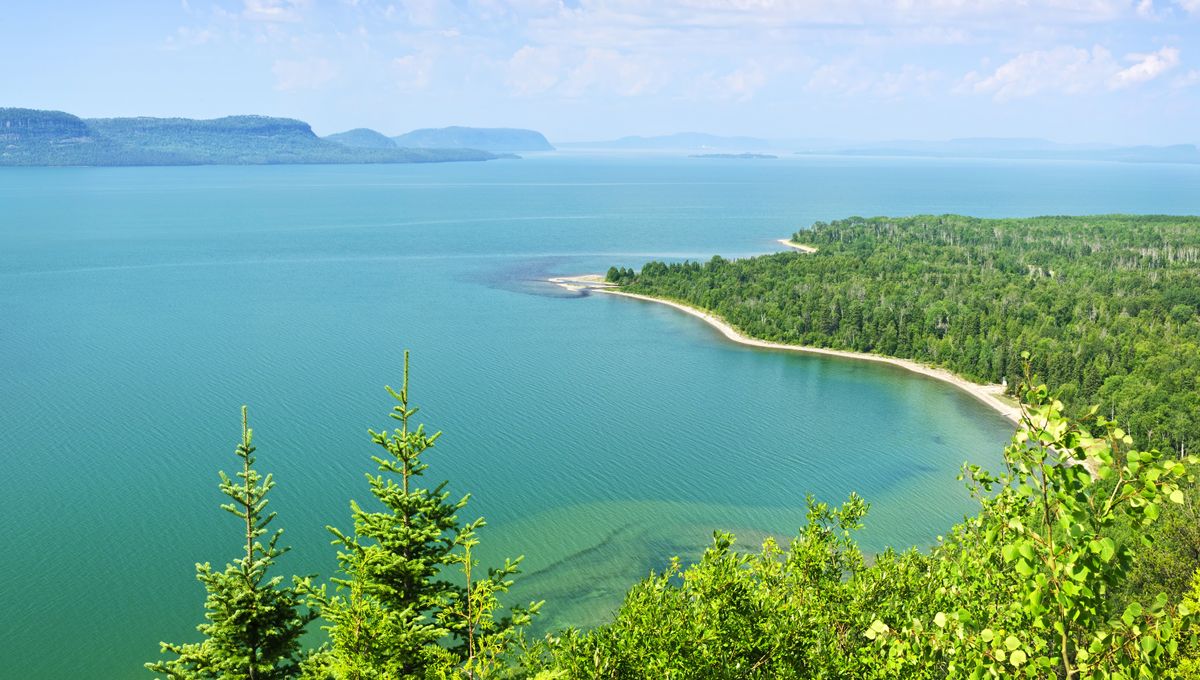
Sit with your own thoughts for long enough and you’ll come up with all sorts of questions. If you banged a tuning fork in space, would it vibrate forever? Is Jurassic Park possible? Does musical genre affect the flavor of cheese? And on today’s roster: why doesn’t the water in lakes just absorb into the ground?
That was the question recently posed by TikTok user allison_risner20, and though the comment section and stitches provide some very amusing possibilities (lakes being afraid of the dark, for one), there’s a scientific explanation for her query.
It’s important to start off by saying that some lake water does seep into the ground. We often don’t notice because the water that’s lost is quickly replenished, such as by rain. However, what makes the difference in whether or not, and how quickly, that seepage happens is the material at the bottom of the lake and how permeable it is – can water pass through it?
Image someone is holding up a nice bit of slate and you go and chuck some water on it. That water isn’t going to come out the other side of the rock – it’s going to pour off it. It’s the same idea for rocky-bottomed lakes; if the bottom of a lake is rocky, with very few gaps between, not a lot of water is going to be able to get through.
Even in cases where there are gaps, lakes accumulate a lot of sediment, such as sand, silt, and clay, which helps to fill those spaces. “Over a long, long time, the bottom of the pond itself evolves and changes,” explained hydrologist Dr Joan Wu, speaking to Washington State University’s Ask Dr Universe. “The materials settle and the little particles, or sediments, fill in the large pores.”
However, water can also escape by other means – namely, evaporation. “Eventually, you will lose water from the top and from the bottom of a pond,” said Wu. But thanks to that handy biogeochemical phenomenon known as the water cycle, any water that’s lost due to evaporation should theoretically be replenished by precipitation.
Theoretically is the key word there. A study published in May last year revealed that more than half of the world’s large lakes (that includes both natural lakes and man-made ones) are drying up. According to the researchers, 56 percent of that decline is due to human consumption and climate warming, the latter of which increases the amount of water lost due to evaporation.
So whilst lakes might not be draining away with reckless abandon, with around 2 billion people around the world living near one, it’s probably a good idea to keep an eye on them.
All “explainer” articles are confirmed by fact checkers to be correct at time of publishing. Text, images, and links may be edited, removed, or added to at a later date to keep information current.
Source Link: Why Don’t Lakes Just Absorb Into The Ground?